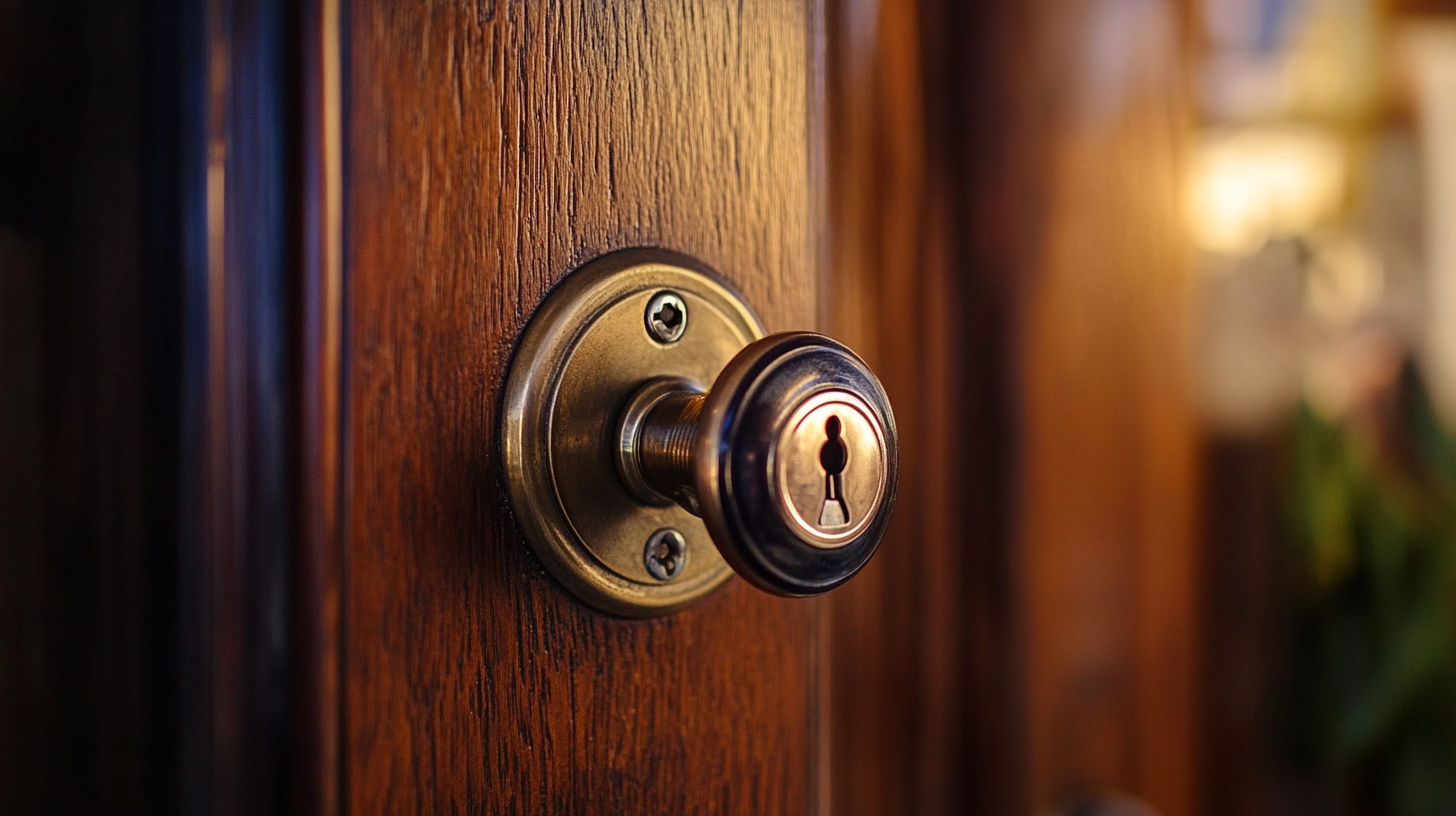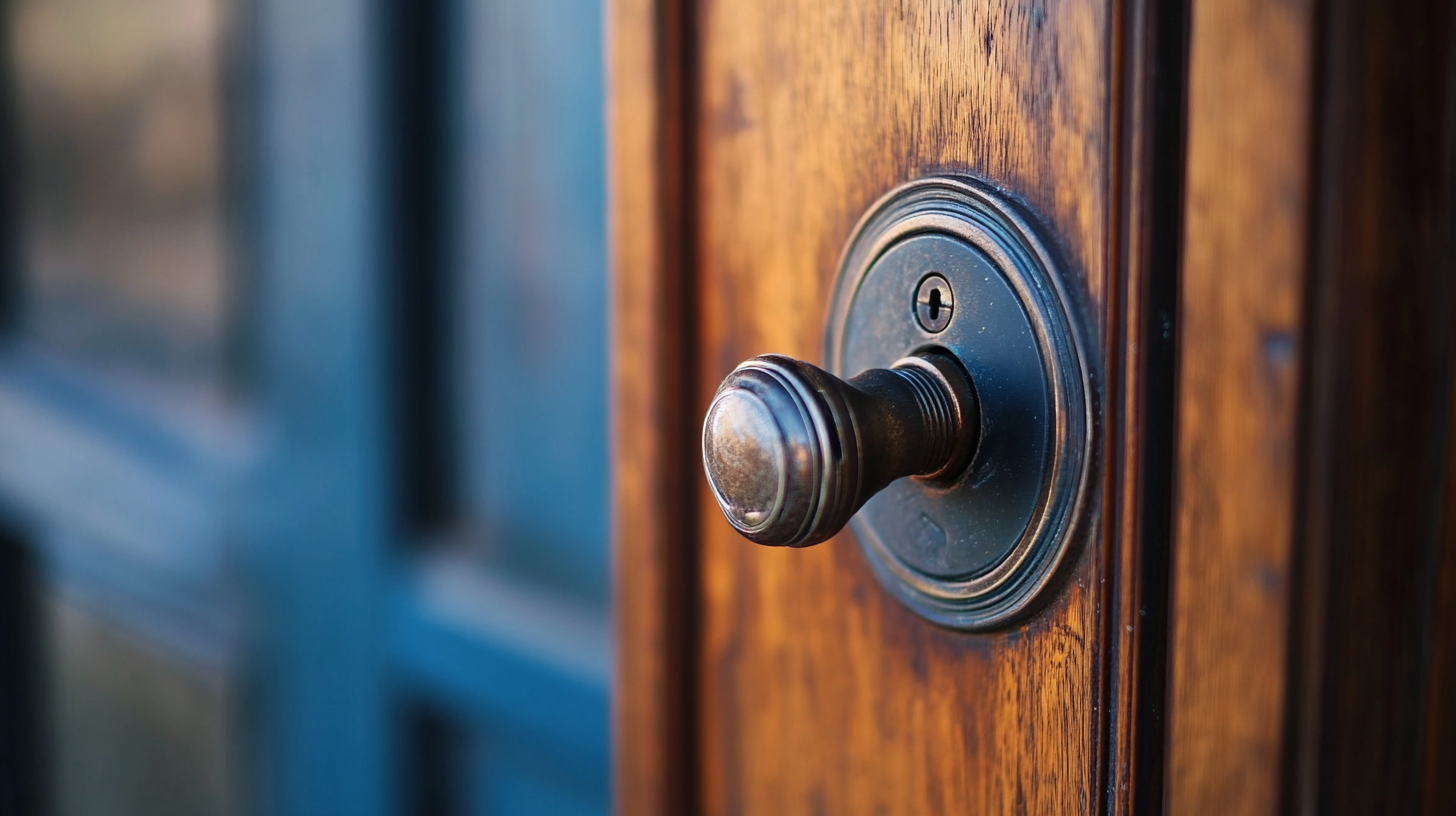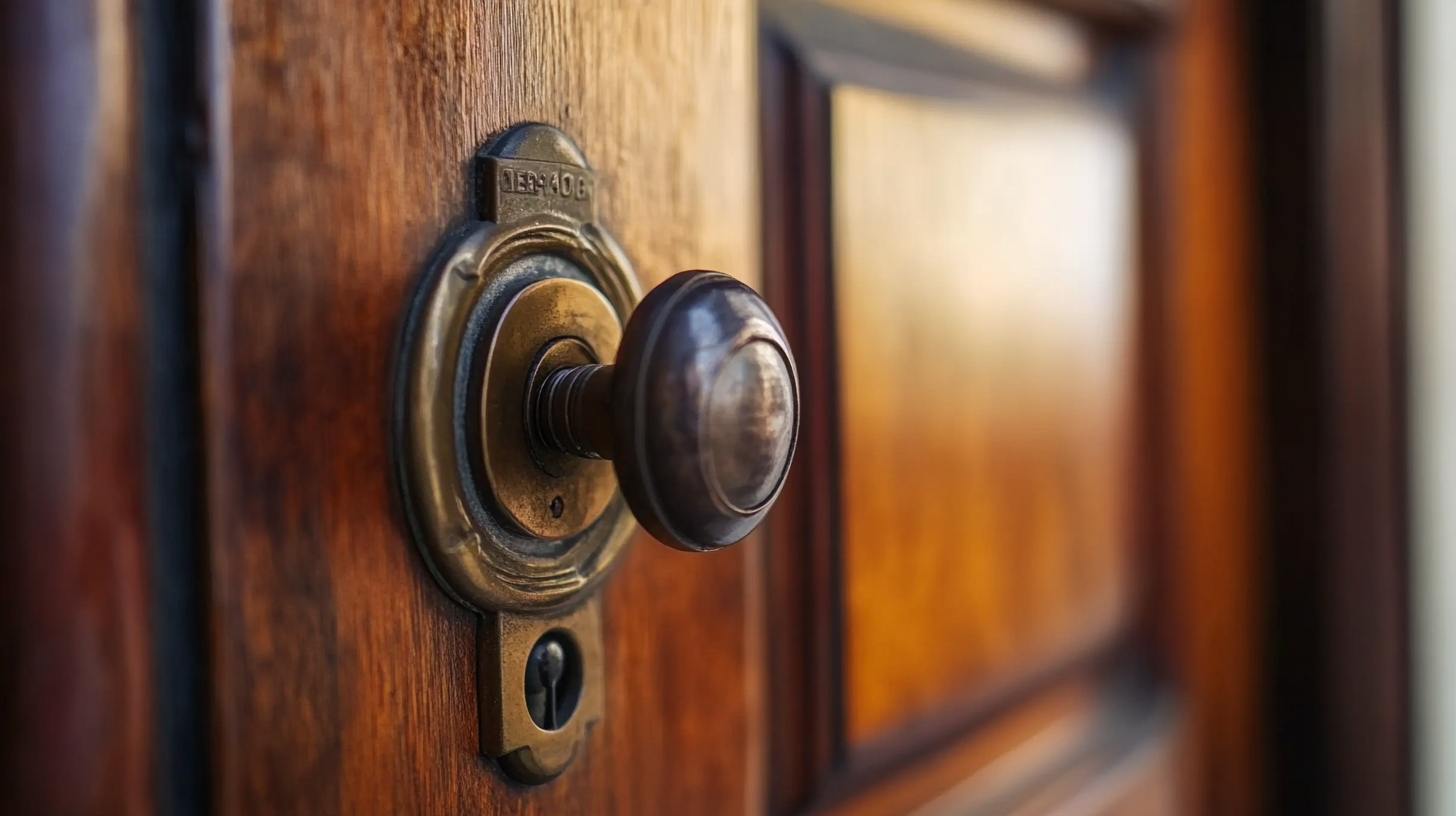
How to Select the Most Secure Deadbolt Locks for Your Home
 When it comes to securing your home, the choice of
deadbolt locks is pivotal. According to a report by the
Bureau of Justice Statistics, approximately 1 in 36 homes in the United States reported a burglary in 2019, emphasizing the urgent need for robust security measures.
Deadbolt locks are often considered one of the most effective ways to deter intruders, with a study by
Locksmith Ledger indicating that high-quality deadbolt locks can provide a
five-fold increase in protection compared to standard door knobs. However, not all deadbolts are created equal.
Understanding the various types, security ratings, and features such as
key control and resistance to picking is essential for selecting the right deadbolt lock for your home.
This checklist guide will assist homeowners in navigating the landscape of deadbolt locks, ensuring peace of mind and enhanced security for their living spaces.
When it comes to securing your home, the choice of
deadbolt locks is pivotal. According to a report by the
Bureau of Justice Statistics, approximately 1 in 36 homes in the United States reported a burglary in 2019, emphasizing the urgent need for robust security measures.
Deadbolt locks are often considered one of the most effective ways to deter intruders, with a study by
Locksmith Ledger indicating that high-quality deadbolt locks can provide a
five-fold increase in protection compared to standard door knobs. However, not all deadbolts are created equal.
Understanding the various types, security ratings, and features such as
key control and resistance to picking is essential for selecting the right deadbolt lock for your home.
This checklist guide will assist homeowners in navigating the landscape of deadbolt locks, ensuring peace of mind and enhanced security for their living spaces.
Importance of Deadbolt Locks in Home Security: Statistics and Insights
Deadbolt locks are a critical component of home security, providing an additional layer of protection beyond standard door locks. Recent statistics indicate that a significant number of homeowners underestimate the importance of robust locking systems, with many still neglecting basic security measures. For instance, a survey in Australia revealed that one in five households do not routinely lock their doors, leaving their properties vulnerable to burglaries. This highlights the essential need for utilizing secure deadbolt locks as a primary defense against intrusions.
Moreover, the evolving landscape of home security has led to a rise in the adoption of advanced locking technologies. The global market for smart locks is projected to reach substantial figures over the next few years, illustrating a growing awareness among consumers about the value of innovative security solutions. Home security experts emphasize that investing in high-quality deadbolt locks, alongside smart locks that offer keyless entry and remote access, can greatly enhance the safety of a home. As homeowners seek methods to protect their personal information and belongings, secure deadbolts remain a relevant and necessary investment in safeguarding our living spaces.
Key Features to Look for in a High-Security Deadbolt Lock
When selecting a deadbolt lock for your home, prioritizing security features can make a significant difference in safeguarding your property. According to the Secure Home Report, 34% of home intruders prefer to enter through the front door, highlighting the need for robust locking systems. One key feature to consider is the lock's ANSI grade. Deadbolt locks are rated on a scale of 1 to 3, with Grade 1 being the highest, offering superior resistance to forced entry. Additionally, features such as a drill-resistant cylinder and hardened steel bolts can enhance protection against tampering and break-ins.
Another critical aspect is the key control system. High-security deadbolts often utilize unique key designs that prevent unauthorized duplication, with some brands offering patented keyways that enhance security. According to the Bureau of Justice Statistics, homes without deadbolts are 15 times more likely to be broken into than those equipped with advanced locking systems.
Therefore, investing in a lock with features like anti-picking pins, bump-proof designs, and reinforced strike plates can provide homeowners with peace of mind, ensuring their property remains protected against intruders.
Comparative Analysis: Grade 1 vs. Grade 2 Deadbolt Locks
When selecting deadbolt locks for your home, understanding the differences between Grade 1 and Grade 2 locks is crucial for enhancing your security. Grade 1 deadbolts are the highest rating assigned by the American National Standards Institute (ANSI) and are built to withstand intense force and manipulation. They typically feature stronger materials, higher durability, and superior resistance to picking. This makes them an excellent choice for exterior doors in areas with higher crime rates or for homeowners seeking the utmost in security.
In contrast, Grade 2 deadbolt locks offer a solid level of protection but fall slightly short of Grade 1 standards. While they are still robust and secure enough for many residential applications, they may use less durable materials and have slightly lower resistance to forced entry or tampering. Homeowners on a budget or those living in safer neighborhoods might consider Grade 2 locks for their secondary entrances or internal doors. Ultimately, the choice between Grade 1 and Grade 2 should be based on your specific security needs, location, and budget considerations, ensuring you strike the right balance between safety and cost-effectiveness.
Comparison of Grade 1 vs. Grade 2 Deadbolt Locks
Recent Trends in Deadbolt Lock Technology and Innovation
 Recent advancements in deadbolt lock technology are reshaping the security landscape for homes. The global smart lock market is projected to reach USD 10.74 billion by 2033, growing at a remarkable CAGR of 16.16%. This surge highlights the increasing demand for secure and advanced locking solutions as homeowners seek to integrate enhanced security with convenience. Multifunctional smart door locks exemplify this trend, offering versatile features that cater to modern security needs.
Recent advancements in deadbolt lock technology are reshaping the security landscape for homes. The global smart lock market is projected to reach USD 10.74 billion by 2033, growing at a remarkable CAGR of 16.16%. This surge highlights the increasing demand for secure and advanced locking solutions as homeowners seek to integrate enhanced security with convenience. Multifunctional smart door locks exemplify this trend, offering versatile features that cater to modern security needs.
Technological innovations are leading the way in smart locking systems, with options now including keyless entry, remote control capabilities via smartphones, and even facial recognition. The introduction of smart locks has transformed traditional locking mechanisms, providing homeowners with added layers of security and ease of access. For instance, smart locks can now be managed remotely, allowing users to monitor and control their home security from anywhere, which is crucial in today's fast-paced world. As this market continues to grow, the incorporation of cutting-edge technology in deadbolt locks will play a significant role in enhancing home safety and security.
Expert Recommendations: Top Brands and Models for Maximum Security
When it comes to selecting the most secure deadbolt locks for your home, choosing the right brands and models is crucial. Expert recommendations often highlight brands like Schlage, Kwikset, and Baldwin as top contenders for maximum security. Schlage's B660P, for instance, features a heavy-duty construction and an ANSI/BHMA Grade 1 certification, providing unparalleled durability and resistance to picking and forced entry.
Another key recommendation is the Kwikset 980, which offers SmartKey technology—allowing homeowners to re-key the lock easily without having to replace it entirely. This feature not only enhances convenience but also adds an extra layer of security, as you can swiftly change the key if it’s been compromised. Additionally, Baldwin's Prestige series locks are known for their elegant design and robust security features, making them perfect for homeowners who prioritize both aesthetics and protection.
When selecting a deadbolt lock, consider these tips: First, always look for ANSI/BHMA grades, with Grade 1 being the most secure. Second, ensure the lock has a solid steel bolt and a reinforced strike plate to resist tampering. Lastly, if you opt for smart locks, check that they have robust encryption methods to protect against hacking. These expert-recommended brands and models, combined with practical tips, can help you create a secure environment for your home.

